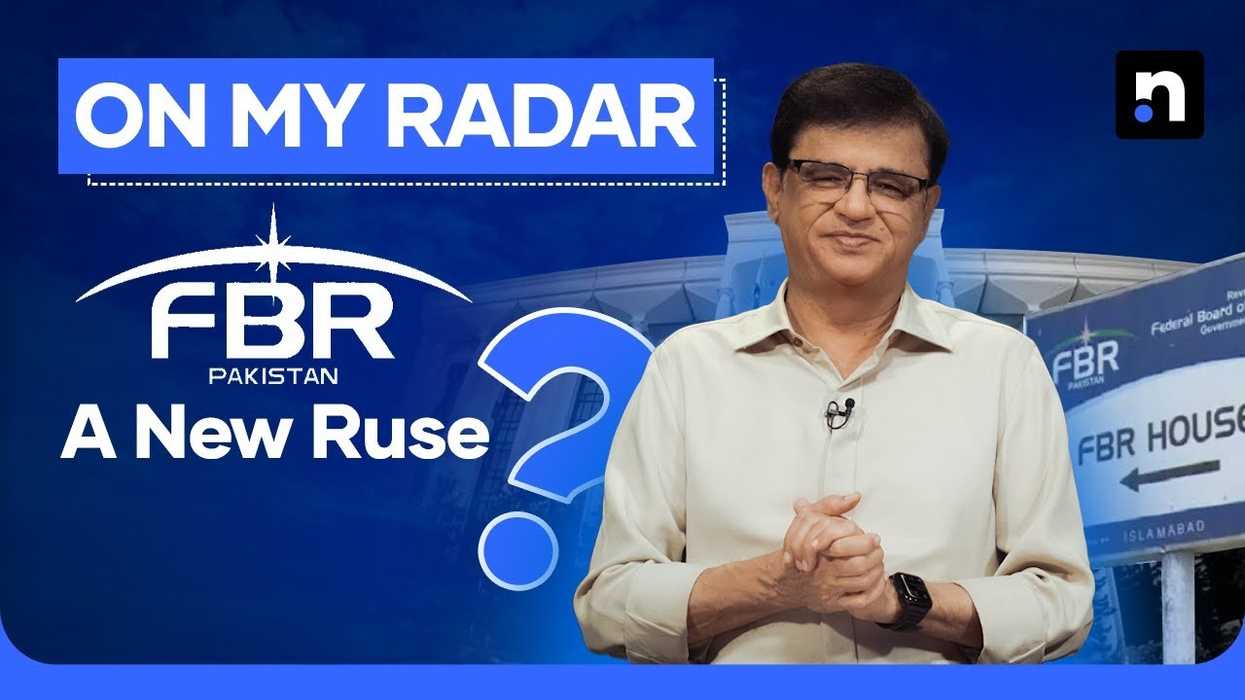Tax evasion and FBR corruption: A system built to fail?
Founder and CEO of Nukta Kamran Khan says FBR keeps announcing reforms, but it’s just a distraction from the real issues of tax evasion and corruption
News Desk
The News Desk provides timely and factual coverage of national and international events, with an emphasis on accuracy and clarity.
You’ve probably heard the saying, "An elephant has two sets of teeth: one for show and one for use," or the English idiom, "All bark and no bite." In English, there's also "Look busy, do nothing."
You might be wondering why I’m discussing Urdu proverbs and English idioms today. Well, it's not about them, but rather my reference is to Pakistan's tax collection authority, the FBR (Federal Board of Revenue), which every now and then releases new headlines and distractions, leading the public on a wild goose chase.
Last week, Finance Minister Muhammad Aurangzeb and FBR Chairman Rashid Langrial held a press conference where they made big claims, exposing tax evasion of Rs3,400 billion, showing proof of "flying invoices," announcing the end of the non-filers category, and warning tax-evading companies of a crackdown.
The key question is: Why the need for all these announcements? Has someone stopped the FBR from taking action against tax evaders? Does the FBR not have the authority to expand the tax network and catch tax cheats? Or did the press conference just alert the corrupt mafia beforehand? Isn't it true that the FBR's own "black sheep" are facilitators of these tax evaders? In reality, the public has been distracted with another "wild goose chase" by the FBR with fresh claims and accusations.
The FBR frequently throws out new distractions to divert attention from real issues. Sometimes, they promise to recover PKR3,200 billion stuck in tax cases.
Other times, they scare the public by threatening action through NADRA and bank data, or they warn of cutting off electricity and gas connections.
At one point, they ordered telecom companies to block the SIM cards of non-filers. Then, they launched an application for a business-friendly scheme or promised large-scale Point of Sales installations.
Announcements about implementing a track-and-trace system, separating customs and inland revenue departments, or even overhauling the FBR with funding from the Bill & Melinda Gates Foundation were made.
It seems that hardly any Pakistani expects good from the FBR. In the past five years, nine chairmen have been replaced—before Rashid Langrial, there were Amjad Tuwana, Dr. Ashfaq, Asim Ahmed, Javed Ghani, Nausheen Amjad, Shabbar Zaidi, and Jehanzaib Khan—yet no substantial success has been achieved in the tax system.
The FBR has become known for its officers’ extorting bribes for refunds, fake invoicing, allowing tax evaders to thrive while honest taxpayers suffer, and even internal fights over bribe distribution, sometimes leading to gunfights.
Just four months ago, there was such a brawl at the Lahore’s taxpayers office, but to cover up the scandal, a nominal departmental inquiry was held. Three Grade 20 officers were transferred, and a Grade 18 officer was suspended for four months to bury the issue.
Believe it or not, the collusion between FBR officers in corruption cases is impressive. Whether it’s an inquiry, investigation, or court case, the alleged corruption mafia within the FBR stands united and secures "stay orders" from the courts.
A prime example of FBR’s performance is that it blocked mobile SIM cards to collect 6.4 million tax filers, yet by July 14 this year, 70% of newly registered filers reported "zero" tax. Out of 200,000 individuals and companies registered for GST, 80,000 declared no business activity and filed nil or null returns.
The finance minister himself admits that up to 6% of the tax collected goes into FBR officers’ pockets as "speed money." This blatant corruption is why Pakistan’s tax-to-GDP ratio is just 9%, while in comparison, India’s is 17% and even a small country like Nepal’s is 18%. To hide these facts, the FBR keeps distracting the public every few days.








Comments
See what people are discussing